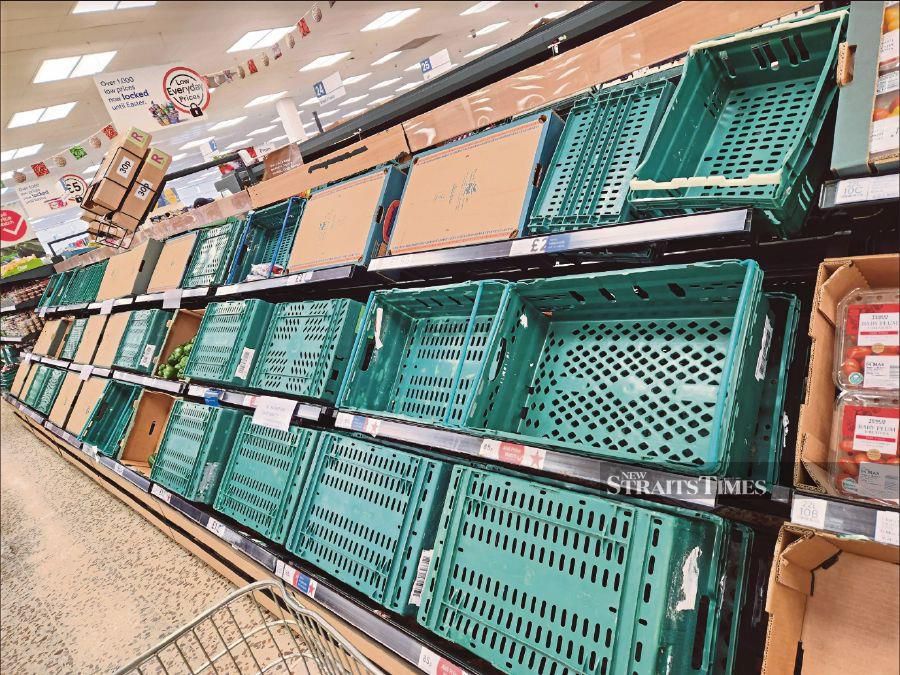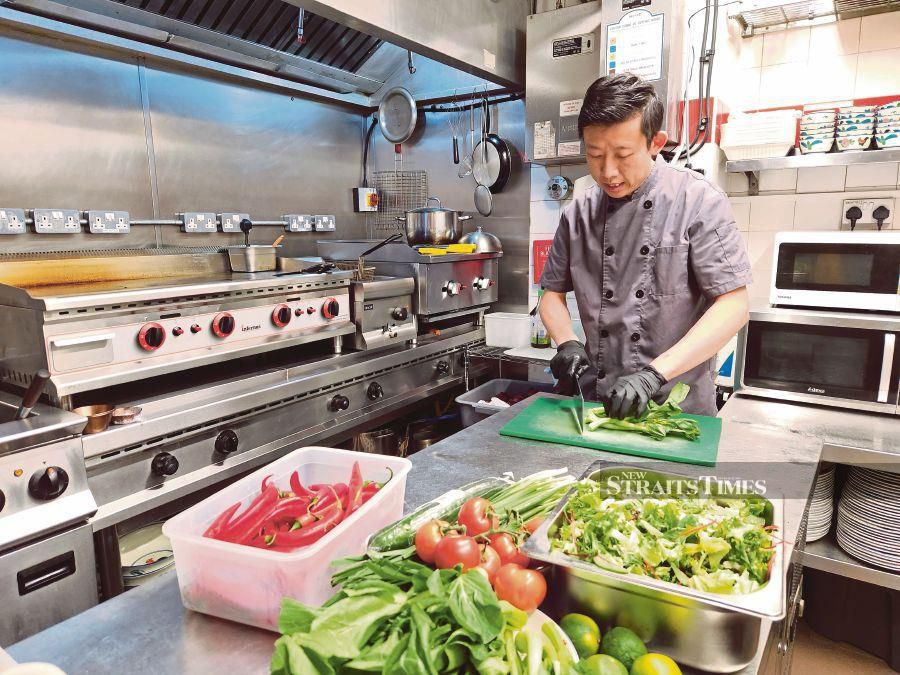Upon arrival at our local supermarket a few days ago, a group of us raced to one destination: the fruit and vegetables aisle.
Fuelled by reports of shortage of greens, I pushed my trolley along the aisle.
But from afar, I could see that the usual mountains of vegetables, such as cucumbers, tomatoes and peppers, were now empty boxes, with notices blaming the adverse weather conditions for the products being out of stock.
"We are working hard to refill our shelves," was the promise.
I could imagine my Laksa Kedah being without the much-needed accompaniments.
But that is not as bad as what restaurateurs and food caterers are facing until the promised stock arrives. Imagine salads without cucumbers and tomatoes, and the same goes with sandwiches minus the usual greens.
This is certainly a time to reflect. The shortages will hopefully be temporary. Images of victims of the earthquake in Turkiye and Syria and the overwhelming shortages they are facing have put a different perspective on our problem.
"Yes, things are bad," said Azhar of Makan Café as he offloaded his weekly shopping for his popular eatery in Portobello Market.
Makan Café is known for its Laksa Singapore with chopped cucumbers as garnish.
There are days when there's no delivery of greens, but even when they were available, the price would be much higher than usual.
"It is not worth buying when the price is too high," sighed Azhar, who was considering increasing the prices of his dishes next month.
And it is not just vegetables that have put restaurateurs in a Catch- 22 situation.
A price increase will certainly be on the table and will hit those who want to dine out.
"Shortages, whether real or done on purpose, affect our products.
"Evaporated milk, for example, has doubled in price over the span of a week," said Zainuddin Yahya, better known as Tuk Din, of the Tukdin Flavours of Malaysia eatery.

The price of rice, he said, had been going up by the week.
Cooking oil was half the price it was since we reopened after the pandemic. We have to find a substitute and balance the end product to not compromise quality.
"For the time being, we will absorb the increase in cost, but it seems the shortage will lead to a price increase from suppliers and will eventually force us to increase our menu prices to meet new challenges," said Tuk Din, who had done all he could to beat the rationing of cucumbers, vegetables and tomatoes from his usual supermarket, Lidl, the German discount shop.
Med Pang of Med Salleh restaurant in Bayswater too complained about similar woes, having to pay higher prices than usual for products that are not that fresh.
The shortage is being felt more especially for home-run businesses. Nora of Nora's Kitchen and Ae Mi of Madam Chang, who enjoyed roaring business with their homemade kaya spread, have had to put their products on the backburner due to a shortage of eggs.
And the slow-cooking process of making kaya will burn a hole in their pockets as the cost of energy has rocketed.
"So what's causing all these shortages? Isn't this a first world country?" asked a commenter when I wrote about this on my Facebook page.
We have heard about vegetable farms in the United Kingdom that used to lure Malaysian students and workers who wanted extra income bringing fresh fruits and vegetables that would end up in supermarkets and then on our tables.
But it seems that the UK depended heavily on countries such as Spain and Morocco for farm products during winter.
However, heavy rain and floods in that part of the world meant that suppliers have been hit by ferry cancellations, which have in turn affected lorry transport.
The Ukraine war has contributed to a reduction in food produced in greenhouses in countries such as the Netherlands.
Fuel is no longer cheap and farmers face eye-watering energy bills as gas prices rose last year.
They no longer want to farm this way. Producers had no choice but to cut production.
Is Brexit to be blamed for these shortages?
Almost daily, a group of protestors gather outside Westminster to complain and blame Brexit for everything that has gone wrong.
But the government denies that Brexit is to blame, with one spokesman saying that the government "can't control the weather in Spain".
However, many are pointing the finger at post-Brexit trade arrangements, as public support for the split from the European Union continues to decline.
Whatever is to be blamed, the public want to know for how long more they have to face empty boxes of greens and having rationed food products that are essential for healthy eating.
This food crisis is expected to last only "a few weeks" until the UK growing season begins. Supermarkets will find alternative sources of supply.
In the meantime, we should reflect on how others less fortunate than us, in other parts of the world, are coping without essentials and without even a glimmer of hope of having anything to put on their tables.
That is assuming they even have tables.
The views expressed in this article are the author's own and do not necessarily reflect those of the New Straits Times






